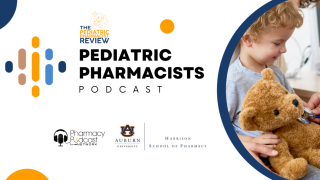Achieving Techquity Will Change the Next Pandemic

A diverse stakeholder group across multiple sectors recently reached a consensus on how best to deploy digital health to support public health in an integrated manner to overcome the COVID-19 pandemic.
Recognizing this, the Riyadh Declaration on Digital Health, formulated by an international interdisciplinary team of thirteen medical, academic, and industry experts, provided a set of recommendations for the global health community to address the challenges of the current and future pandemics.
Published by the JAMA Network on February 23, 2022, these participants reached a consensus on high-priority questions within five themes: team, transparency and trust, technology, techquity, and transformation.
This article is excerpted below:
Working in teams and public-private partnerships represents a critical foundation of accelerated science, such as witnessed for the COVID-19 vaccine development and delivery.
Our action points encourage partnerships that intertwine comprehensive ecosystems, a culture of collaboration and cooperation, and engaged patients and citizens with full knowledge, rights, and consent on how their data are used and processed.
Adopting such an approach from discovery to development to the delivery of innovation in health care should accelerate the delivery of regulatory requirements.
In practice, stakeholders should have a diverse set of interests. Still, each should fulfill a specific role in the health of citizens, and this collaboration will act to integrate and synergize the best knowledge, skills, and training that all health team stakeholders have to offer.
However, engaging different stakeholders to effectively collaborate and share information relies on trust and transparency, without which they will be unwilling to transfer data to enable digital health technologies, such as digital surveillance.
Our consensus action points specifically address the factors that erode trust, especially among the public, such as data generation in poorly secured systems and restricting data sets to individual stakeholders in silos.
Our framework combines a public health response with respect for ethical and privacy principles, which is fundamental for building trust and transparency in the use of digital tools because a lack of public trust may decrease compliance with public health advice or recommendations, adversely impacting health outcomes.
Community leaders should be enlisted at the grassroots level to bolster public trust in digital health care tools and systems wherever possible because it is challenging to build a trusting relationship through mobile technologies alone.
Digital health technologies and consumer-generated data have the potential to provide timely and accurate data and information about the disease. But this potential is hampered by aging systems and underreporting that may affect data quality and, ultimately, the predictive value of a surveillance system.
There was consensus that digital technologies could overcome these problems.
However, the existence of superior technology and big data does not necessarily equate to usable insights.
Although most industrialized nations have extremely high EHR penetration and use, these technologies presented a limiting factor throughout the pandemic. Data remained trapped within EHRs and subject to software vendors and proprietary relationships and burdens placed on the EHR user.
Essentially, the capacity for health care professionals to provide public health authorities with needed data became almost intractable.
Compounding the issue was the public health authorities’ absence of understanding and knowledge of clinical and laboratory operations and information systems, limitations that ultimately led to untenable policies and rulemaking.
For future pandemic preparedness, this bottleneck needs to be anticipated.
The rate of mobile technology adoption is very high in developed countries (94%).
It is rapidly increasing in developing nations (78%), but barriers to access to internet connectivity and, consequently, to digital health care can reinforce profound inequalities.
Techquity means that specific people or groups should not be denied the means of achieving a state of health that is available to others through digital skills development, internet access, digital health literacy, and minimization of the effects of harmful digital marketing on health and well-being.
Our consensus mitigates against digital exclusion at the global, regional, national, local, and individual levels. In addition, it addresses the need to train and include those from disadvantaged populations to contribute to and participate in decision-making related to digital health.
Will the COVID-19 pandemic be a tipping point for digital health?
In 2022 and beyond, health's inevitable transformation will be accelerated due to a strengthened focus on the need for data and digital access to advance population health and wellness.
The guidance provided in this consensus statement, if followed, would lay the foundation for much greater resilience to future pandemics.
As such, our consensus statement complements the WHO Global Strategy on Digital Health and other recommendations by providing actions specific to pandemic preparedness that create the preconditions at local, national, and supranational levels.
In conclusion, this consensus statement, building on the Riyadh Declaration on Digital Health, is intended to inform the digital health strategy for the broadest range of stakeholders around the world.
We hope that the public, governments, the private sector, non-governmental organizations, and/or civil society organizations will adopt these principles to achieve a connected global health system.
This digital health system will enable world-class responses to the next global health crises.
Note: This article was edited for language translation.
CoronavirusToday publishes fact-checked research-based COVID-19 news.
Our Trust Standards: Medical Advisory Committee
























